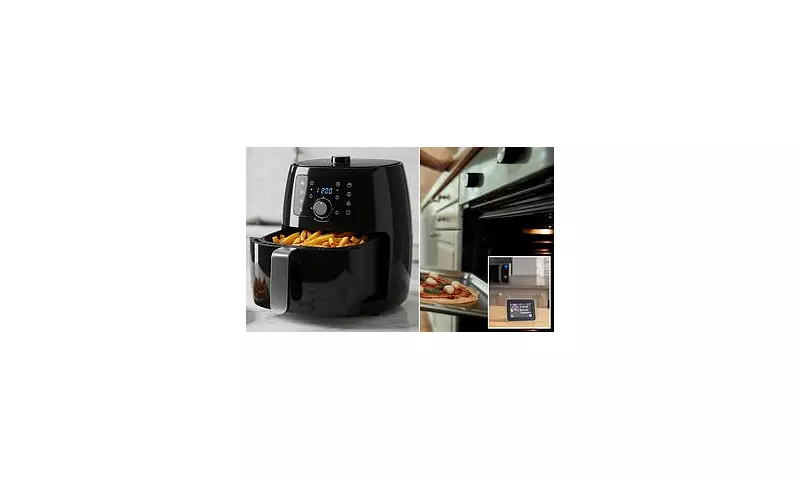
As energy bills continue to squeeze household budgets across Britain, many families are searching for ways to cut costs without sacrificing their favourite meals. The humble air fryer has emerged as a potential kitchen hero, but does it really deliver the savings it promises compared to traditional ovens?
The Kitchen Appliance Showdown
New analysis reveals a startling difference in running costs between these two popular cooking methods. While both appliances serve similar purposes, their energy consumption tells a very different story.
Crunching the Numbers
According to recent calculations based on current energy prices, running a typical air fryer costs approximately 33.7p per hour. In contrast, operating a conventional electric oven sets households back around 87p per hour - nearly three times more expensive.
The savings become even more impressive when you consider that air fryers cook food significantly faster than traditional ovens, meaning you're using energy for shorter periods.
Why Air Fryers Are More Efficient
Several factors contribute to the air fryer's superior energy efficiency:
- Smaller cooking space means less area to heat
- Rapid heating technology reduces preheating time
- Concentrated heat circulation cooks food more efficiently
- Shorter cooking times overall
Real-World Savings
For families who regularly use their oven, switching to an air fryer for appropriate meals could translate to substantial annual savings. Imagine preparing your weekly roast potatoes, chicken wings, or even reheating pizza in the air fryer instead of firing up the full oven.
The cumulative effect of these small changes could make a noticeable difference to your energy bills, particularly during the colder months when households are already consuming more electricity and gas.
When the Oven Still Makes Sense
Despite the clear cost advantages, there are still situations where your conventional oven remains the better choice:
- Large family meals requiring significant cooking space
- Baking projects that need precise temperature control
- Multiple dishes that need to cook simultaneously
- Certain recipes that simply don't translate well to air frying
Smart Kitchen Strategy
The most cost-effective approach involves using both appliances strategically. Reserve your oven for larger cooking tasks and batch cooking, while employing the air fryer for smaller, quicker meals and reheating leftovers.
"The key is understanding that these appliances complement rather than replace each other," says a kitchen efficiency expert. "Used wisely, they can help households significantly reduce their energy consumption without compromising on meal quality."
The Bottom Line for British Households
With energy prices remaining stubbornly high, every penny saved counts. The air fryer versus oven debate clearly shows that making smart choices about which appliance to use can have a meaningful impact on your household budget.
While the initial investment in an air fryer might give some pause, the long-term savings potential makes it a worthwhile consideration for cost-conscious consumers navigating the ongoing cost of living challenges.





